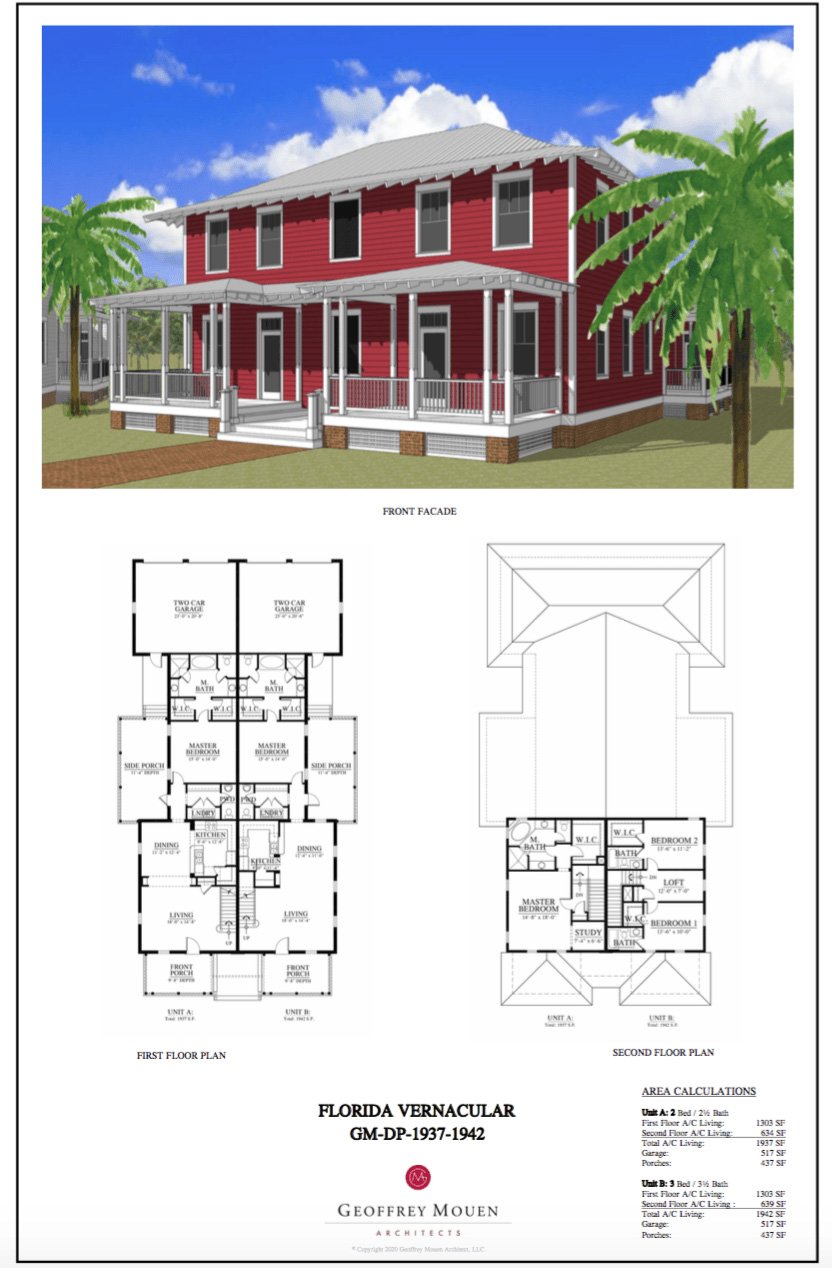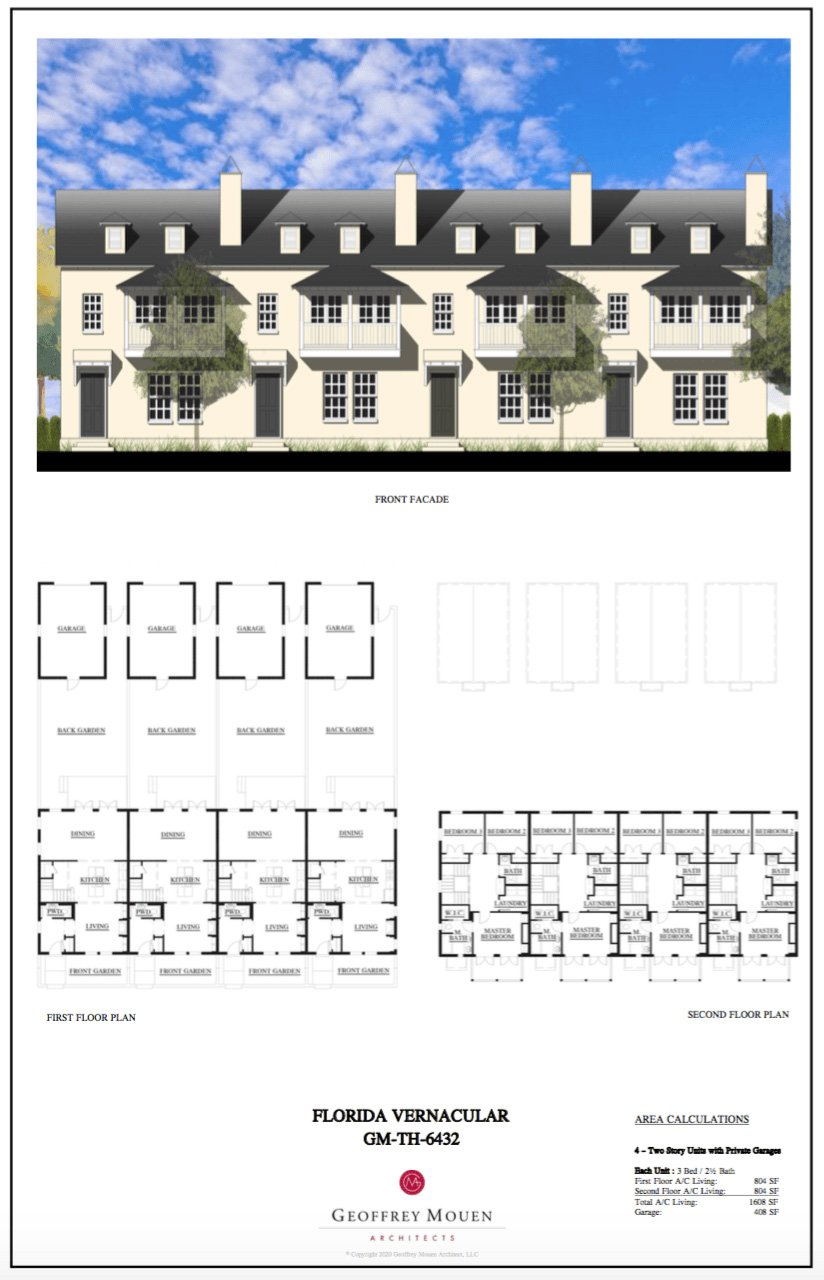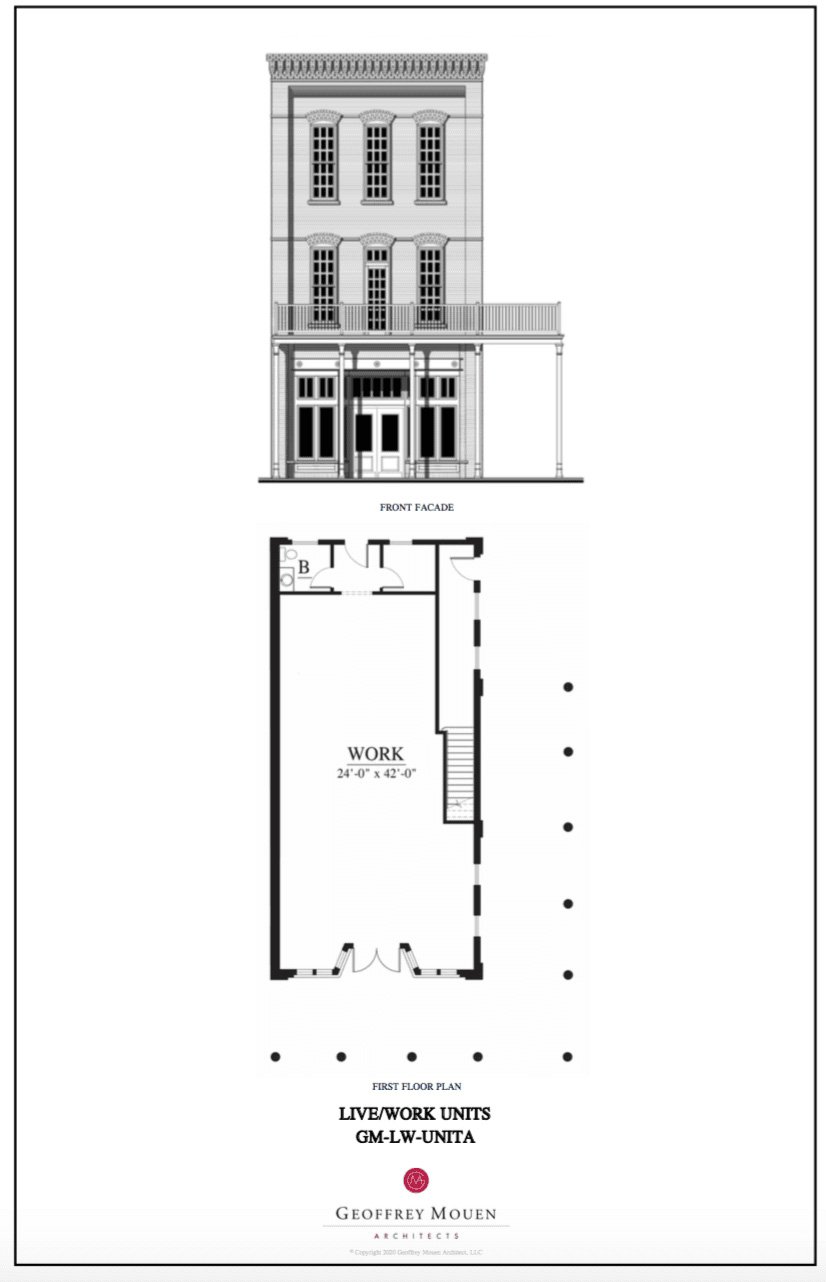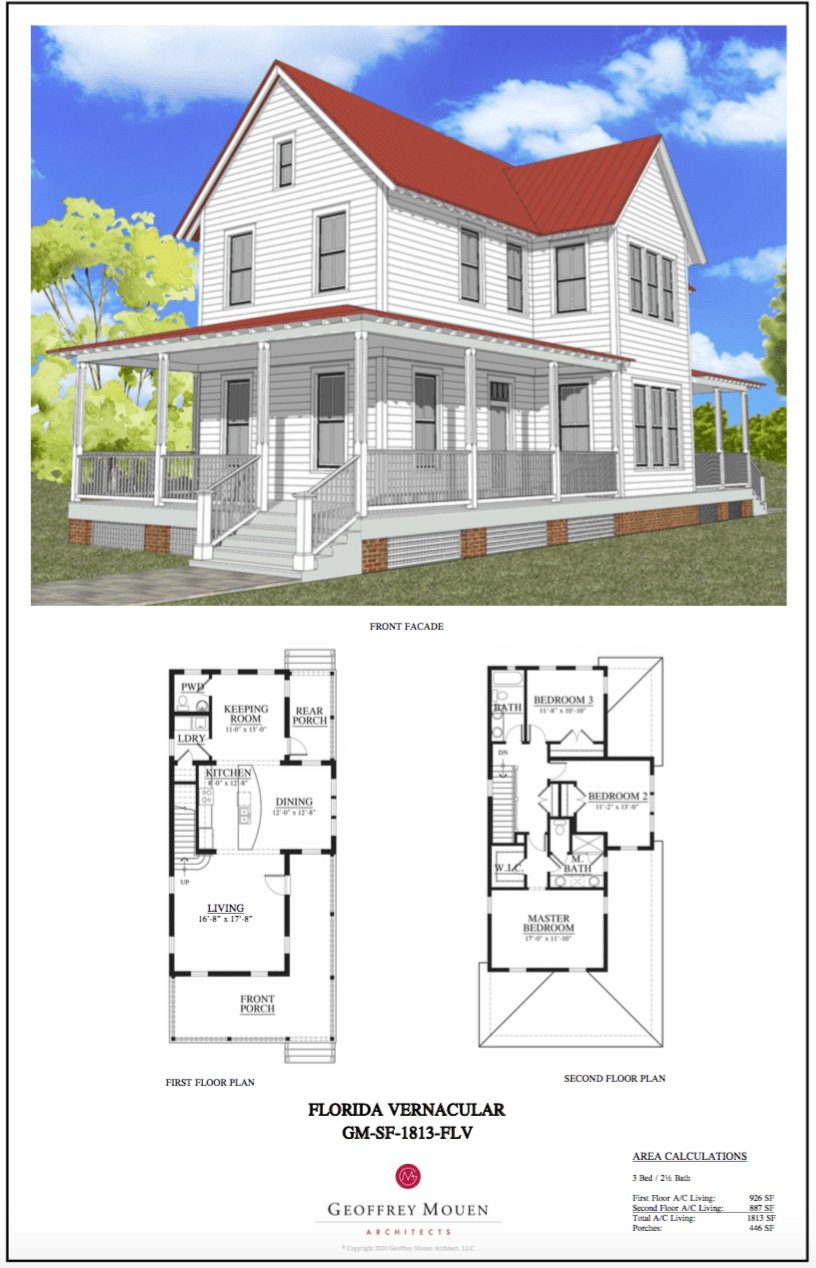Florida City Prepares Pre-Approved Plans To Lower Barriers for Small Developers
(Source: City of Groveland.)
Looking to build a house in fast-growing Central Florida? The city of Groveland has a deal for you. Just walk into the city office and browse a portfolio of complete architectural plans done by an accomplished local architect in appealing Florida vernacular styles. As a bonus, all plans include complete zoning and code approval, saving potential developers money, time, and the unpredictability that deters many such projects.
For Groveland, the goal is threefold. The city is one of the fastest growing in Florida, almost tripling in population since 2010, and needs to accommodate the influx. It hopes to preserve a traditional urban pattern and historic architectural style in a region dominated by large housing developments. Groveland officials hope this program of pre-approved plans will enable more infill construction, allowing smaller developers to participate more in a region dominated by big builders.
Geoffrey Mouen, a Florida-based architect who has championed traditional town planning and design, contributed his work to the portfolio of available plans. His drawings on offer on the city’s website include a two-story, single-family home with porches front and back; a duplex style, also with porches facing the street; a fourplex townhouse; and a live-work unit designed to fit into a traditional downtown with a professional space on the first floor and two residential stories above. None of the designs have street-facing garages so common in Florida residential developments.
Timothy Maslow, Groveland’s Community Development Director, says the city is inspired by New Urbanist principles and is embracing an all-of-the-above approach to accommodate all the growth in the region. Groveland has updated its codes to allow ADUs, duplexes, and multiplexes. It eliminated minimum-size requirements, allowing smaller homes for smaller households. It created a village and hamlet plan for small, walkable communities. Maslow says that after enabling more building types, the city started asking, “How do we incentivize this?”
Groveland is reducing impact fees for missing-middle housing types, and delaying fees for anyone using the pre-approved plans to allow smaller developers to secure financing. Maslow said that Mouen’s previous work in Celebration, Florida, and the Baldwin Park neighborhood of Winter Park gave the city confidence he’d be the perfect partner for the project.
Maslow sees the pre-approved plans as a great option for incremental developers and says the goal is to make the program as “turnkey and easy as possible.” He says the time, expertise, and expense of generating building plans can deter smaller projects. The approval process adds another layer of risk and uncertainty, and he sees that as one of the primary benefits of the program: “You're getting something that you already know is going to meet the city's architectural zoning standards. And it's going to meet the building code because it's already been reviewed.”





Construction and certification will require the regular regimen of on-site inspections. Maslow hopes the program will enable younger builders or firms that “are just trying to get a start and create a business and get some good investment opportunities.”
Mouen shares that goal, and would be gratified to see his designs come to life in and around Groveland. He says his motivation was not to profit from the plans he offered the city (participants will still have to agree to legal terms with his firm): “I just want to see more good plans get built in that area.” Mouen has done many high-end, single-family commissions in Florida and says that designing successful smaller homes requires similar skills. “We bring that same level of attention to detail not only in the quality of the construction elements, but also in the proportion and scale of traditional architecture that people resonate with,” says Mouen.
In some ways, pre-approved plans harken back to Sears Craftsman homes, with an available library of housing types and architectural styles. Although you won’t get a complete kit shipped to your lot, Mouen says the plans can trigger the same, “Oh, I can go build that” motivation. Maslow speculates that there’s a good business opportunity to do modular versions of appealing American architectural styles on a larger scale.
The concept of pre-approved plans to streamline smaller-scale development is gaining momentum, with success stories in South Bend, Indiana, and a new program underway in Spokane, Washington. The goal is to enable missing-middle housing construction that is often ignored by developers of large multiplex apartments or greenfield residential communities.
Groveland is taking other steps to steer development where and how it would like. It’s working on a truck bypass to keep heavy vehicle traffic from its core, and looking at reconfiguring existing roads for more mixed uses. Groveland also adopted a form-based code to govern its planned developments, embracing Florida Vernacular, a traditional style well adapted to the climate with abundant windows and overhanging roofs with porches.
Maslow and city officials hope these changes bring economic activity to the center of Groveland. “I think the exciting thing is getting more people in our downtown, redeveloping our downtown.” To that end, several of the pre-approved models would support a live-work model, with office or retail space combined with residential, or enable a startup developer who could live in one unit of a fourplex.
Work is also underway on the Lake Catherine Farms project, what Mouen calls “a light imprint, agrarian neighborhood.” The design is inspired by Seaside and will feature traditional Florida architecture and building materials with a walkable town center. The owners of the existing blueberry farm will keep their operation going using land that occupies about 25% of the property.
A look at the Wednesday Workshop section of Groveland’s website shows a city committed to many of the principles Strong Towns and its allies advocate. This isn’t a coincidence (gratuitous plug warning): “We've been inspired by Strong Towns, we've been inspired by the Congress for the New Urbanism, by the Incremental Development Alliance,” says Maslow.





Many of incremental development’s values — localism, quality and civic pride — align well with those of houses of worship. If faith communities embrace this model, we could see a wave of faith-based housing that complements the broader movement toward incremental development.